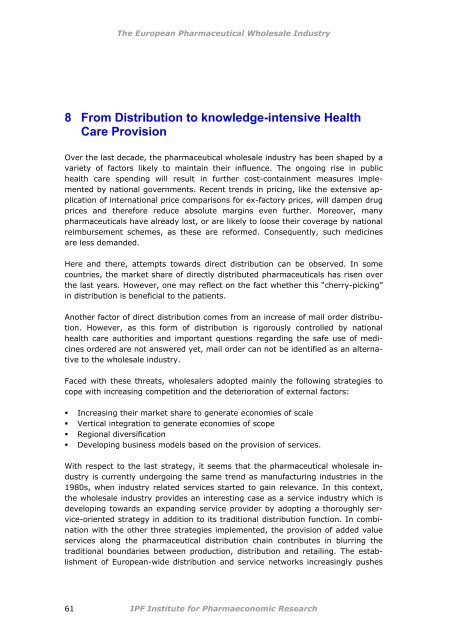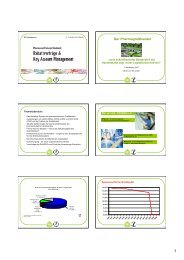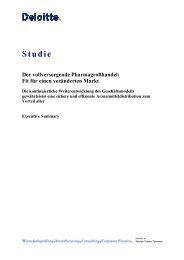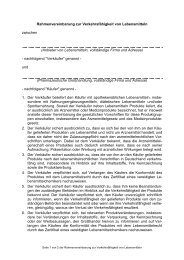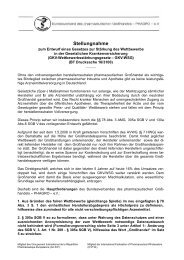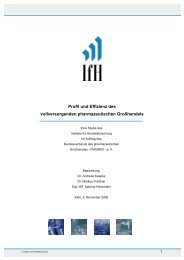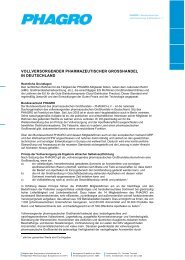The European Pharmaceutical Wholesale Industry: - phagro
The European Pharmaceutical Wholesale Industry: - phagro
The European Pharmaceutical Wholesale Industry: - phagro
Create successful ePaper yourself
Turn your PDF publications into a flip-book with our unique Google optimized e-Paper software.
<strong>The</strong> <strong>European</strong> <strong>Pharmaceutical</strong> <strong>Wholesale</strong> <strong>Industry</strong><br />
8 From Distribution to knowledge-intensive Health<br />
Care Provision<br />
Over the last decade, the pharmaceutical wholesale industry has been shaped by a<br />
variety of factors likely to maintain their influence. <strong>The</strong> ongoing rise in public<br />
health care spending will result in further cost-containment measures implemented<br />
by national governments. Recent trends in pricing, like the extensive application<br />
of international price comparisons for ex-factory prices, will dampen drug<br />
prices and therefore reduce absolute margins even further. Moreover, many<br />
pharmaceuticals have already lost, or are likely to loose their coverage by national<br />
reimbursement schemes, as these are reformed. Consequently, such medicines<br />
are less demanded.<br />
Here and there, attempts towards direct distribution can be observed. In some<br />
countries, the market share of directly distributed pharmaceuticals has risen over<br />
the last years. However, one may reflect on the fact whether this “cherry-picking”<br />
in distribution is beneficial to the patients.<br />
Another factor of direct distribution comes from an increase of mail order distribution.<br />
However, as this form of distribution is rigorously controlled by national<br />
health care authorities and important questions regarding the safe use of medicines<br />
ordered are not answered yet, mail order can not be identified as an alternative<br />
to the wholesale industry.<br />
Faced with these threats, wholesalers adopted mainly the following strategies to<br />
cope with increasing competition and the deterioration of external factors:<br />
� Increasing their market share to generate economies of scale<br />
� Vertical integration to generate economies of scope<br />
� Regional diversification<br />
� Developing business models based on the provision of services.<br />
With respect to the last strategy, it seems that the pharmaceutical wholesale industry<br />
is currently undergoing the same trend as manufacturing industries in the<br />
1980s, when industry related services started to gain relevance. In this context,<br />
the wholesale industry provides an interesting case as a service industry which is<br />
developing towards an expanding service provider by adopting a thoroughly service-oriented<br />
strategy in addition to its traditional distribution function. In combination<br />
with the other three strategies implemented, the provision of added value<br />
services along the pharmaceutical distribution chain contributes in blurring the<br />
traditional boundaries between production, distribution and retailing. <strong>The</strong> establishment<br />
of <strong>European</strong>-wide distribution and service networks increasingly pushes<br />
61<br />
IPF Institute for Pharmaeconomic Research


